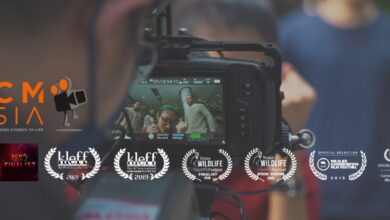
Introduction:
In the vast tapestry of human expression, few art forms possess the universal appeal and transcendent power of music. It is a language that speaks to the soul, transcending cultural boundaries, and resonating with individuals on a deeply emotional level. From the rhythmic beats of ancient drums to the intricate compositions of classical symphonies and the contemporary beats of pop and electronic music, the journey of music is a rich and diverse narrative that reflects the essence of human experience.
The Historical Tapestry of Music:
The roots of music can be traced back to the dawn of human civilization. Early cultures discovered the profound impact of rhythm and melody, using music in rituals, ceremonies, and communal gatherings. As societies evolved, so did musical expression, giving rise to diverse genres and styles that mirrored the cultural, social, and emotional landscapes of their time. From the haunting melodies of Gregorian chants to the revolutionary sounds of jazz and the rebellious spirit of rock ‘n’ roll, each era has contributed to the ever-expanding palette of musical expression.
The Universal Language:
One of the remarkable aspects of music is its ability to communicate across linguistic and cultural barriers. Regardless of the listener’s background or native language, the emotional depth conveyed by a piece of music can evoke a shared experience. Music serves as a bridge that connects individuals, fostering a sense of unity and shared humanity. Whether through the joyous celebrations of a festival, the mournful strains of a requiem, or the rhythmic pulse of a dance beat, music resonates with the human spirit in ways that words alone cannot capture.
Emotional Resonance:
Music has an unparalleled capacity to evoke emotions, serving as a conduit for feelings that may be difficult to express through words. A melancholic melody can bring forth tears, a lively rhythm can induce euphoria, and a powerful crescendo can instill a sense of awe. Composers and artists craft sonic landscapes that tap into the emotional core of the listener, offering solace, inspiration, or catharsis. This emotional resonance is a testament to the ability of music to be a companion in the highs and lows of life.
Evolution of Genres and Styles:
The dynamic nature of music is evident in the constant evolution of genres and styles. Each generation contributes to the ever-expanding tapestry of musical expression, creating new sounds and pushing the boundaries of creativity. From the classical compositions of Mozart and Beethoven to the revolutionary beats of hip-hop and electronic dance music, the diversity of genres reflects the ever-changing nature of society and the human experience.
Technology’s Impact on Music:
Advancements in technology have played a pivotal role in shaping the landscape of music. The invention of the phonograph, radio, and, more recently, digital recording and streaming platforms have democratized access to music, allowing artists to reach global audiences with unprecedented ease. The democratization of music production has empowered independent artists, fostering a vibrant and diverse musical ecosystem.
The Role of Music in Society:
Beyond individual enjoyment, music plays a crucial role in shaping and reflecting societal values. It has been a powerful force in movements for social justice, political change, and cultural revolutions. Protest songs, anthems, and compositions inspired by social issues serve as a mirror reflecting the collective consciousness of a society. Music has the power to inspire unity, challenge injustice, and elevate the human spirit in times of both triumph and adversity.
Conclusion:
In the grand symphony of human existence, music stands as a testament to our shared humanity. Its ability to transcend linguistic, cultural, and temporal boundaries reinforces its status as a universal language. As we continue to explore new sonic frontiers and embrace the ever-evolving soundscape of music, let us celebrate the diversity and universality that make it an integral part of the human experience. From the ancient rhythms that echoed through primal landscapes to the futuristic beats of tomorrow, music remains an enduring and enchanting force that unites us all.



